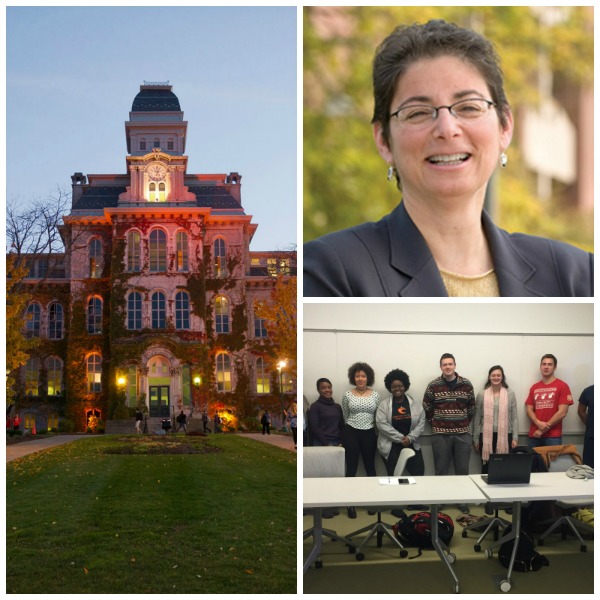New York’s Syracuse University, established in 1870, is one of the top universities in the nation. It’s 2017 national ranking, in fact, is number 60 — an impressive feat considering the thousands of universities it competes with.
That’s why iWorQ was so proud to lend its services to Syracuse’s Modern Urban Infrastructure class, taught by Dr. Laura J. Steinberg, Ph.D.
Dr. Laura Steinberg, the former dean of Syracuse University’s L.C. Smith College of Engineering and Computer Science (LCS), received her Bachelor’s of Science from the University of Pennsylvania in Civil and Urban Engineering. She then went on to earn her Master’s and Ph.D. in Environmental Engineering from Duke University. She currently serves as Syracuse’s special assistant for strategy to the vice chancellor for strategic initiatives and innovation.
In spite of her busy schedule, Dr. Steinberg took the time to chat with us about how beneficial iWorQ was to her and her students — and exactly why she plans to use it again.
Dr. Steinberg’s Review
How did you find iWorQ?
“I was just looking on the web for a software system that did asset management, and I wanted one where everything was accessible on the web. I didn’t want to download a program. I liked that it did the suite of things, [including] working on pavements.”
Why did you choose iWorQ for your class simulation?
“[iWorQ] offered such a suite of things and I thought all of them could be useful to the class. And it’s great that it is online. I actually had an experience before with asset management software in the public domain where you had to download it and it was a disaster.”
What was your objective for the students with this kind of assignment? What were you hoping to teach them?
“This class is for seniors, mostly engineers. It teaches them to go beyond the design of infrastructure into maintenance, economic impacts, and social impacts, so they have a greater understanding of the totality and complexity of infrastructure.
I had the students do this assignment because I thought that in the real world, there’s a good chance [the students] will be doing asset management, and I wanted them to understand how asset management is done with a modern software system. I wanted them to understand the power of such a software system to aid in decision making.
One of the good things about it was that the students had to walk the streets and look at the pavement and signs and see for themselves what an asset manager has to deal with in terms of quality. I had them grade the quality of the pavement. They were shocked once they saw these roads they’d been walking on and driving on for years. They were shocked at the quality of the street — that it was so poor — and they started to understand the problem Syracuse would have in maintaining the roads. I still remember my out-of-class field trips when I was a student! So these students will always remember when they graded the pavement.”
How did the students feel about iWorQ?
“They thought it was really valuable and they seemed to enjoy the assignment a lot. They loved the fact that it was a mobile application. The students just did it on their phones and they loved it. I and they were very impressed with the residual life calculations.”
What was Garyn’s [iWorQ’s CEO] role in the program?
“Garyn was great. First, he gave a full lecture about asset management, starting all the way from the Accounting Board rules. There were 24 boards assessing the requirements for asset management. Garyn spent an hour lecturing us about why one does asset management and why and how it’s used. He showed us how to use [iWorQ’s applications]. He even mounted the city of Syracuse up on the iWorQ system with all the roads and everything, and gave every student a password and allowed them to put in his or her own pavement and sign quality data. We had another conversation with the students after the exercise where they described the results to him and he talked to us more about how to interpret them. And then he made it so that if the students had any questions, they could call in and talk to a salesperson like a regular client. [The experience] was very intuitive.”
Would you use iWorQ again?
“Yes. In fact, I’m teaching another class that’s slightly different, but I’d like to do a similar thing. At minimum, I’d like Garyn to give another lecture for sure. These students are really talkative and they’re grad students. They would have tons of questions and I think Garyn would really like that.”
How would you describe your experience with iWorQ in one sentence?
“It’s an incredibly powerful tool for asset management and very easy to use.”


